The Australian anti-quackery group “Friends of Science in Medicine” was founded in 2011. Since that time, it has been advocating, with some success and the occasional setback, for improved consumer protection and more awareness of the nonsense that makes up complementary and alternative medicine. With this post we provide a short history of our organization and some of our key activities.
Before FSM…
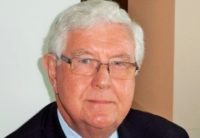
Me, Dr. John Dwyer
In the early 80’s, I cared for many patients with ‘Acquired Immune Deficiency Syndrome’ (AIDS), for which we had no cure. As an immunologist, I was angry that so many were promised expensive cures by ‘alternative practitioners’.
That stimulated my interest in health care fraud. In 2003, the New South Wales Health Minister asked me to chair a relevant committee. This ‘politically correct’ committee of practitioners of non-evidence based care ran for more than a year. Consensus, in this most scientific of ages, was impossible.
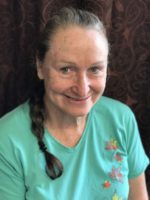
Loretta Marron, jelly bean whisperer
With inadequate legislative protection of consumers, occasional outbursts by individuals might generate publicity for 24 hours but changed nothing. One exception was former computer professional, Loretta Marron, in Queensland. After a health scare when she saw first-hand the exploitation by ‘alternative’ practitioners, she set about exposing fraud. A skilled user of the media, her ‘stunts’ proved effective. She became the ‘Jelly Bean Lady’ after using jelly beans to test ‘therapeutic’ magnetised mattress underlays. She substituted jelly beans in one of the underlays and had participants use a magnetism-detecting meter. They were not able to tell which had the magnets.
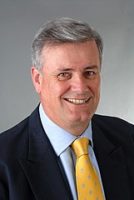
Dr. Alastair MacLellan, obstetrician and skeptic
In 2011, Loretta and some senior academics became concerned that some Australian universities were giving credibility to non-evidence-based practices. She introduced me to Professor Alastair MacLennan, a respected obstetrician countering false information about cerebral palsy and Professor Rob Morrison, a highly effective science communicator. Also concerned was Professor Marcello Costa, renowned neuroscientist and member of the Australian Academy of Science. Costa had been educating the public, especially concerning neuroscience and acupuncture.
Australian Skeptics, also concerned about universities teaching pseudoscience, produced a list of such courses. RMIT in Melbourne was promoting ‘Energy Healing’. At ‘Open days’, staff teaching Traditional Chinese Medicine (TCM) gave participants an earring which they claimed, if placed strategically, could prevent and treat depression.
Southern Cross University, whose foundation Chair of Science was a ‘Healing Touch’ practitioner, was training homeopaths, running an on-site clinic. Other universities offering courses in Chiropractic were exposing students to ‘subluxation theory’, claiming that running up and down our spines is an invisible energy that was essential for health, and that all illnesses result from distortions of the bony anatomy (subluxation) interfering with this energy. Even though invisible with our latest imaging, this energy can be corrected by manipulating the spine. Many were manipulating the cervical spines of infants and offering pregnancy care, including the ‘Webster technique‘ which could safely turn breech babies. None of this is evidence based.
In 2011, we learnt that the Central Queensland University was proposing a Bachelor degree in Chiropractic. Voicing our concerns about giving credibility to ‘pseudo-sciences’, we wrote to the university’s leadership urging them to abandon that lucrative initiative. We were ignored.
The birth of FSM
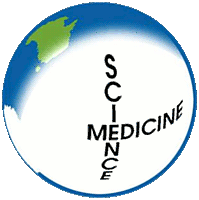 Brought together by Loretta Marron, we recognised that a formal organisation, with medical and scientific leaders collectively promoting the importance of “credible scientific evidence underpinning the provision of health care in Australia”, might be more effective. In 2011, we launched Friends of Science in Medicine (FSM) with Loretta Marron as foundation CEO, attracting 1,000 members within a few months.
Brought together by Loretta Marron, we recognised that a formal organisation, with medical and scientific leaders collectively promoting the importance of “credible scientific evidence underpinning the provision of health care in Australia”, might be more effective. In 2011, we launched Friends of Science in Medicine (FSM) with Loretta Marron as foundation CEO, attracting 1,000 members within a few months.
Ten years later, FSM is well established and respected by those we would wish to respect us and loathed by many who feel threatened.
Soon realising that consumer protection from health care fraud was inadequate, we approached the two major government agencies ‘protecting’ consumers, the Australian Health Practitioner Regulation Agency (AHPRA) and the Therapeutic Goods Administration (TGA).
AHPRA
AHPRA regulates health care provision via 15 standard-setting Boards. The inadequate ‘National Law‘ governing it allows Boards to determine what their registrants may advertise, but not what they do!
At a meeting with AHPRA executives (none of them are health professionals or scientists) and members of the Chiropractic Board, we found that Chiropractic Board members included some advertising and practising pseudoscience. This flaw, where Board members flout the standards required by the National Law, also pertains on the Osteopathy and Traditional Chinese Medicine (TCM) Boards.
Our diligent CEO developed a modus operandi. We ‘bombarded’ AHPRA and the Chiropractic Board with hundreds of practitioners’ websites’ false claims. All needed investigation, overburdening the few AHPRA staff. Over the next few years, we provided hundreds of examples of fraudulent advertising by osteopaths and TCM practitioners.
We achieved a major reform when the deluge led AHPRA to appoint a senior executive to oversee them. Complaints about advertising led to registrants being required to respond within six weeks, stating remedial action taken. Although positive, it could not change what a practitioner might actually do.
Chiropractic
Pestered by FSM, the Chiropractic Board eventually informed chiropractors that they were not to offer pregnancy care and could not claim to be ‘specialists’ in any given area of health care. More recently, some States have forbidden them from manipulating young childrens’ necks. Yet a majority of chiropractors still offers interventions based on correcting the invisible ‘subluxations’.
Acupuncture
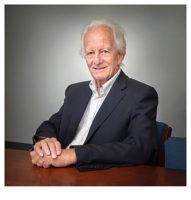
Marcello Costa, neurophysiologist and puncturer of acupuncture
FSM soon turned its attention to the acupuncture scam. Marcello Costa’s neuroscience expertise was invaluable. Most acupuncture is offered by TCM practitioners, but a number of registered doctors and physiotherapists offer it. Credibility had been provided by the WHO’s listing some 160 diseases/problems proven to respond. The underpinning theory is nonsense (i.e. not science). No well-performed studies prove that acupuncture can alter any pathology. It has been called “the perfect theatrical placebo”.
The WHO’s list of benefits, supplied by Chinese doctors, had been accepted without questions. After FSM approached the WHO, and with no little wrangling, the WHO removed the recommendations, replacing them with plans for further study of the evidence before a new list would be provided. FSM met the Chair and members of the TCM Board and AHPRA executives. The latter seemed content with the Board’s refusal to challenge their members; their explanation was that research was proceeding.
Osteopathy
A note for our American readers: Osteopaths in America are just physicians, receiving essentially the same training as an MD, while outside of America the profession is as unscientific as chiropractic or homeopathy.
We tackled the Osteopathy Board. Two particularly objectionable techniques are ‘Osteopathy of the cranial field‘ (OCF) and ‘Visceral manipulation‘. Osteopaths claim to feel, through the skull bones, pulsations of the brain’s cerebrospinal fluid. This alerts them to disease treatable by manipulating the skull bones. The truth is that the fluid does not pulsate and that the skull bones of an adult cannot be moved.
With ‘visceral manipulation’, osteopaths palpate the abdominal organs and send healing vibrations in different directions to treat diseases outside the abdominal cavity – frankly ridiculous.
When we met some members of the Board, including the Chairman, we noted that her own website advertised OCF. She promised that the Board would look at advising practitioners not to use this technique. No action resulted. As of today’s writing, her website still offers OCF.
Nursing and midwifery
In 2013, FSM welcomed experienced nurse, Joanne Benhamu, to the Board. She was particularly concerned about the growing ‘anti-vax’ movement and nurses’ role in championing evidence-based care. We complained to the Midwifery Board when it declared that midwives, as part of their Continuing Professional Development requirements, could get points for studying reflexology!
We got no traction from that Board when objecting to some midwives’ claim that they could turn a breech baby by placing crystals around a patient’s bed!
The TGA
Pursuing our advocacy, we soon discovered that the Therapeutic Goods Agency, ostensibly a natural partner in our mission, was anything but! Ensuring the safety of medicines, supplements claiming a health benefit and equipment used for therapeutic purposes is their responsibility. The TGA, however, is funded by the very companies whose products it regulates. This critical conflict of interest weakens the agency’s efforts to protect consumers.
The TGA tells manufacturers that claims for their products must be supported by credible science. In registering a product, they do not have to provide proof, but have such available for a random audit. We discovered that few claims are checked and that, on average, the required evidence is absent in 70%-80% of cases.
When FSM first engaged with the TGA about fraudulent advertising of medicines and ‘instruments’ for which therapeutic benefit was claimed, the TGA had an independent committee to review advertising. Though we found problems with the process, we could see benefits. The TGA has, in recent years after industry pressure, dispensed with that committee.
We were particularly disturbed by products offering ‘Bioresonance’. Ten minutes’ study of the claims should have seen the TGA ban the use of these products. It took some years until our CEO’s persistent badgering eventually saw such products de-listed.
Where is FSM now?
Studying problems of consumer protection and the TGA, we learnt much from Professor Ken Harvey, an outstanding public health advocate in Melbourne. With unmatched knowledge of all things TGA, he is an effective, vocal critic of its deficiencies. In 2014, he resigned from LaTrobe University when it accepted millions of ‘research’ dollars from Suisse Wellness to prove that their products worked as claimed! The mutual respect which developed paid enormous dividends when he agreed to succeed me as President of FSM.
As we reach our ten-year anniversary, FSM is well respected by sister organisations in the US, UK, and Canada. Australian media frequently consult us. No other Australian organisation is organised to champion evidence-based medicine and to expose health care fraud.
The legislative landscape, protecting consumers poorly, needs urgent overhaul. Hindering this, to be blunt, is the powerful, very profitable ‘alternative’ industry which influences political parties and governments’ decisions. There is no effective protection from the myriad of registered health professionals offering unscientific, often dangerous, advice. Even the nation’s pharmacists, schooled to appreciate and practise evidence-based care, have let profits from the sale of non-evidence-based products diminish their professionalism.
As foundation President of FSM, I am proud of what our organisation has achieved. I have no doubt that the current committed and talented executives will continue to work with our membership to tackle many of the continuing issues which deny so many Australians the benefit of the best that scientific medicine has to offer.
If you have taken the time to read this FSM story, I encourage you to join, at no cost, and support our important, continuing struggle.
FSM 2021
- President: Assoc. Prof. Ken Harvey AM, MBBS, FRCPA, School of Public Health and Preventative Medicine, Monash University.
- Vice-President: Prof Paul Rolan MBBS, MD, FRACP, FFPM(UK), FFPMANZCA, Director Innovation, Health and Medical Sciences Faculty Office, Adelaide University.
- Chief Executive Officer and Secretary: Loretta Marron OAM, BSc, AssocDip(Bus), AAII, MACS.
- Treasurer and Public Officer: Prof Hubertus Jersmann MD, PhD, Discipline of Medicine, University of Adelaide.
- Dr Paulina Stehlik, Senior Research Fellow, Centre for Research in Evidence-Based Practice, Bond University.
- Dr Ian Musgrave, Senior Lecturer, Medical Sciences, University of Adelaide.
- Kurt van Ryswyk, BEng Mechanical (Hons), MEng Biomedical.
Consultants
- Emeritus Prof. John Dwyer AO
- Emeritus Prof. Alastair MacLennan AO
- Prof. Marcello Costa AO
- Prof. Rob Morrison OAM
- Dr. Pallave Dasari
- Dr. Sue Ieraci
Work groups coordinators
- Chief Editor: Peter Arnold OAM
- Web Site: Emeritus Prof. Ian Gibbins
- Social Media (Facebook, Twitter, YouTube): Kurt Van Ryswyk
- Pharmacy: Ian Carr
- Regulatory Compliance and Consumer Protection: Bruce Arnold, Mal Vickers
- Laboratory Investigation: Bruce Campbell, Mark Belkin

